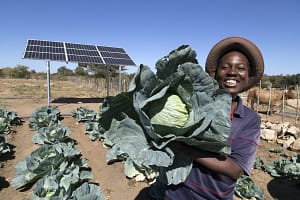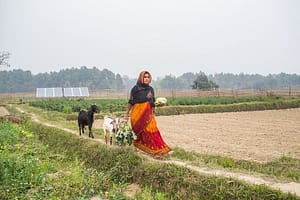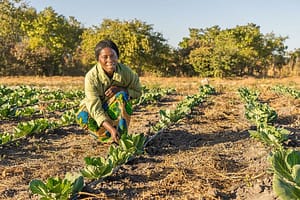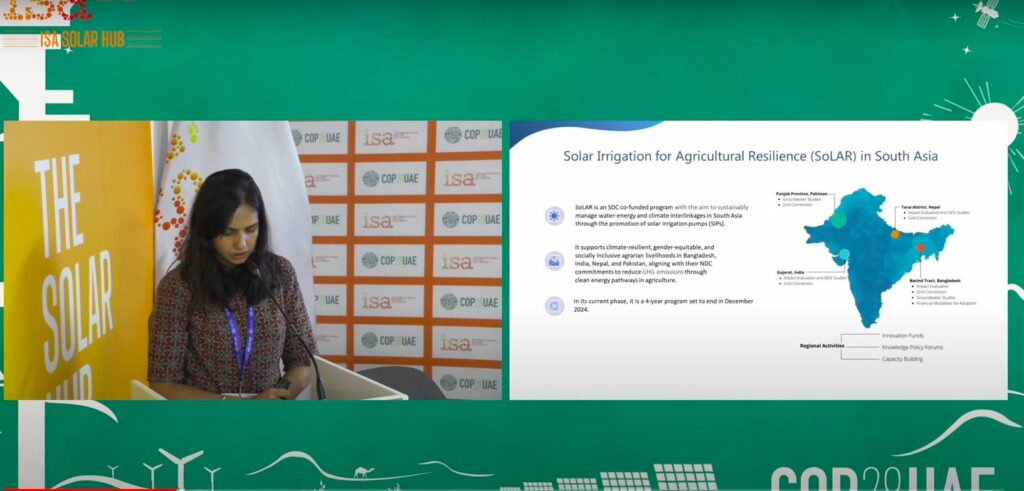
Darshini Ravindranath (Above) and Alok Sikka (Below) speaking at the COP28, United Nations Climate Change Conference (Photo: IWMI)
International Water Management Institute (IWMI) had a strong participation at COP28, United Nations Climate Change Conference held from November 30 to December 12 at Expo City, Dubai, United Arab Emirates. A collaboration between IWMI and International Solar Alliance (ISA) led to a series of events that brought together diverse partners, global experts and leaders to share their thoughts. A session Accelerating Solar Irrigation for Agricultural Resilience: Lessons from South Asia was held at the ISA Pavilion where IWMI researchers, Alok Sikka, Darshini Ravindranath, Shilp Verma, Maha Al-Zu’bi, ISA, and partners from the SoLAR project shared findings and insights on opportunities and challenges for scaling Solar Irrigation Pumps (SIPs) across Bangladesh, India, Nepal, and Pakistan. Using learnings from the SDC-SoLAR project, this session presented first of its kind insights on the effectiveness of solar irrigation as a strategy to sustainably manage water, energy, food and climate interlinkages in South Asia.
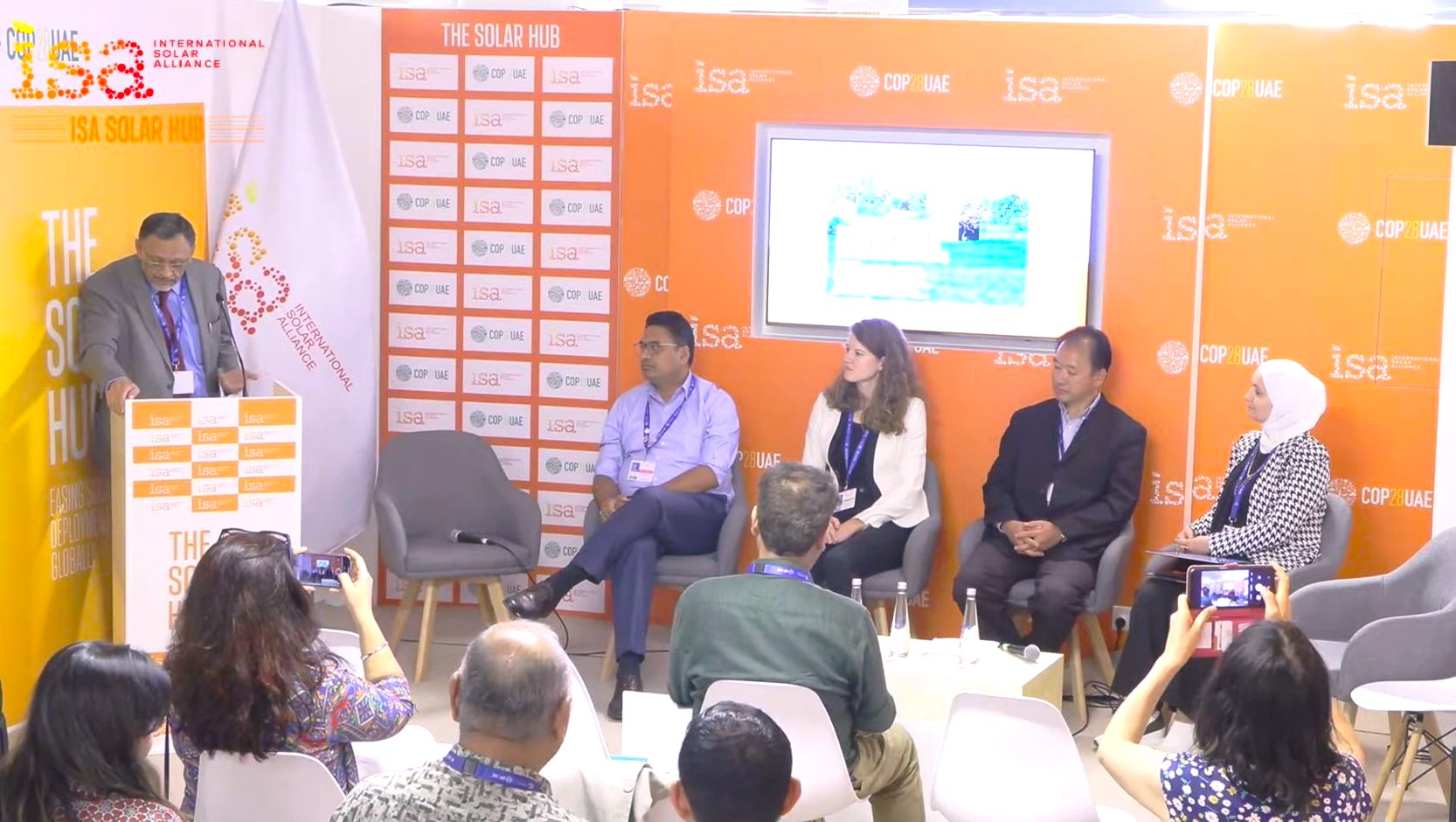
Following excellent opening remarks by Matthais Bachmann, Swiss Development Cooperation (SDC) on the significance of this project for wider climate mitigation and adaptation goals, Darshini Ravindranath (IWMI), Program Lead for SoLAR shared emerging findings. She spoke about the impact of expansion on groundwater sustainability and the facilitation of equitable and gender-inclusive SIP access, and how governments in South Asia are using evidence from the field to develop and deploy ambitious policies and programs on SIPs to address NDC commitments while supporting climate-resilient, gender-equitable, and socially inclusive agrarian livelihoods. Shilp Verma presented learnings from different business models on scaling of on and off-grid SIPs.
In another session, Solar Energy for Agriculture and Rural Livelihoods: Opportunities for South-South Learning and Cooperation, ideas of a global synthesis of the growing body of work around ‘solar applications in agriculture’ and their potential impact on rural life and livelihoods, especially in Africa and Asia were presented.
Following opening remarks by ISA, Shilp Verma (IWMI) provided a keynote presentation using examples from the government supported surge in South Asia (and IWMI’s work under SDC-SoLAR, SE4RL and Nexus Gains), and growth in private-sector involvement in East Africa. The session highlighted growing interest in and proliferation of solar applications across many parts of the developing world. Discussions focused on the future of solar-led agriculture in the MENA region, Central Asia and Latin America. A varied panel was moderated by Darshini Ravindranath where Lance Gore, Asian Development Bank (ADB) discussed ADB’s experience of promoting solar applications in agriculture, especially solar pumps and discussed the need for greater mobilization of capital. While Amanda Coady from the IKEA Foundation highlighted IKEA’s role in supporting decentralized renewable energy applications (including solar irrigation) for supporting and enhancing rural livelihoods in eastern India and elsewhere by putting the farmer at the center of their model. Ashish Chaturvedi from United Nations Development Programme (UNDP) commented on IBSA’s fund experience of supporting pilot projects in 10 countries, highlighting key challenges in the scaling of solar irrigation within different contexts. Dr Mark Smith, Director Generals, IWMI summarized the discussions on where south-south learning and cooperation would be most beneficial.





